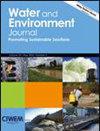虚拟水战略中的政产学研合作:多代理进化博弈分析
IF 1.8
4区 环境科学与生态学
Q4 ENVIRONMENTAL SCIENCES
引用次数: 0
摘要
虚拟水战略(VWS)是平衡地区水资源禀赋、保障供水安全的有效工具。然而,由于围绕虚拟水战略的自利博弈(人类决策偏差),政府、虚拟水(VW)企业和研究机构之间需要有方法保持可靠的合作。本研究建立了一个多代理进化博弈模型,通过改变决策机制和增强合作信心的路径,分析参与者之间的关系及其对虚拟水系统的影响。考虑到初始合作意愿的差异和影响报酬的变化因素,即使部分博弈方不愿合作,进化博弈也能产生变化的稳定均衡或稳定合作。因此,为促进大众创业、万众创新的发展,可以建立大众创业、万众创新产业的多步骤支持机制,培育示范企业,优化合作框架,激励科研机构的研究创新。本文章由计算机程序翻译,如有差异,请以英文原文为准。
Government‐industrial‐research cooperation in virtual water strategy: A multi‐agent evolutionary game analysis
The virtual water strategy (VWS) is an effective tool to balance regional water resource endowments and guarantee water supply security. However, because of self‐interested games around VWS (human decision bias), there is a need for methods to maintain reliable cooperation between governments, virtual water (VW) enterprises and research institutions. This study builds a multi‐agent evolutionary game model to analyse the relationship of players and their impacts on VWS through changing decision mechanisms and the paths to enhance their confidence in cooperation. Considering differences in initial willingness to cooperate and changing factors affecting payoffs, an evolutionary game can produce changing stable equilibriums or stable cooperations, even if some players are reluctant to cooperate. Therefore, to promote the development of VWS, a multistep support mechanism can be built for the VW industry, which fosters model enterprises and optimizes the cooperation framework to stimulate research innovations at scientific institutions.
求助全文
通过发布文献求助,成功后即可免费获取论文全文。
去求助
来源期刊

Water and Environment Journal
环境科学-湖沼学
CiteScore
4.80
自引率
0.00%
发文量
67
审稿时长
18-36 weeks
期刊介绍:
Water and Environment Journal is an internationally recognised peer reviewed Journal for the dissemination of innovations and solutions focussed on enhancing water management best practice. Water and Environment Journal is available to over 12,000 institutions with a further 7,000 copies physically distributed to the Chartered Institution of Water and Environmental Management (CIWEM) membership, comprised of environment sector professionals based across the value chain (utilities, consultancy, technology suppliers, regulators, government and NGOs). As such, the journal provides a conduit between academics and practitioners. We therefore particularly encourage contributions focussed at the interface between academia and industry, which deliver industrially impactful applied research underpinned by scientific evidence. We are keen to attract papers on a broad range of subjects including:
-Water and wastewater treatment for agricultural, municipal and industrial applications
-Sludge treatment including processing, storage and management
-Water recycling
-Urban and stormwater management
-Integrated water management strategies
-Water infrastructure and distribution
-Climate change mitigation including management of impacts on agriculture, urban areas and infrastructure
 求助内容:
求助内容: 应助结果提醒方式:
应助结果提醒方式:


